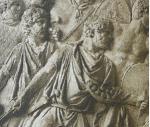You are here
All quiet on the Mideastern front
Oct 21,2018 - Last updated at Oct 21,2018
A hallmark of modern revolutions is that they take everyone by surprise. Take, for instance, the Iranian Revolution of 1979. Up to the moment when the Shah fled the country, nostalgically carrying a cask of Iranian soil, we were assured that the stability of the regime was rock solid, that all Iranians loved the Shah, and that anyone who thought otherwise was uninformed and unhinged.
This was not a one-off boast made by some pundit after he had dined too well. It was the mantra repeated incessantly to anyone who would listen, by the most highly-respected international media quoting the world’s best informed senior diplomats.
At the time, I was a student in England. Admittedly, I was less informed than the experts, but I could see a vast difference between their opinions and those of Iranian students.
Everywhere, on and off campus, there was graffiti in Farsi denigrating the Shah. Privately, Iranian aristocratic students dismissed the Shah as an upstart and referred to him as “the stable boy’s son”, while other Iranians described him as a murderer and a corrupt bloodsucker who was pillaging the country’s vast wealth to finance his personal pleasures.
So where did the journalists and diplomats get their opinions?
Remarkably, the same thing repeated itself time and again, most recently during the Arab uprisings of 2011, which ended the reign of Zine El Abidine Ben Ali in Tunis and Hosni Mubarak in Egypt.
Moreover, look at leaders, such as Aung San Suu Kyi, who are hyped as great reformers and showered with honours and Nobel prizes. They would not pass the most rudimentary integrity check in the countries that award these honors.
Many theories try to explain these great diplomatic blunders. The conspiracy theory, for instance, maintains that powerful nations deliberately undermine the truth in order to perpetuate the backwardness and dependence of weaker nations.
More well-intentioned theories suggest that journalists and diplomats try to give a balanced view of events, but they cite indicators that do not reflect the whole picture. Then again, the best and brightest in their professions seem to make the same mistake with consistency that borders on premeditation.
Hence the cock-up and muddle along theory: Diplomats are mere humans doing a job. They want to complete their term in one country and move on to a better posting. This means ticking all the right boxes and never rocking the boat, for instance, by reporting that their country’s policies are hated by everyone who is aware of them and that they result in disasters all round.
Of course, diplomats need to report all what they hear, so they mingle only with people who would tell them a narrative that is acceptable in their home countries, which they repeat in journalist briefings, and so the message spreads, and a good time is had by all.
Consequently, reports on the Middle East resemble what King Louis 16th wrote in his diary on the day of the storming of the Bastille: “Aujourd’hui, rien” (Today, nothing).












